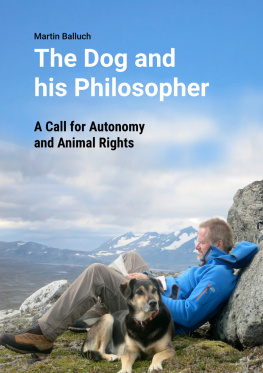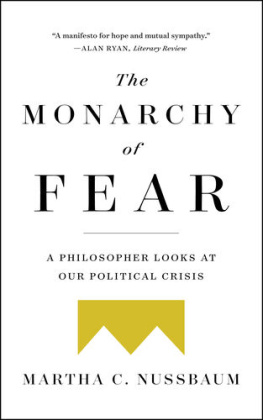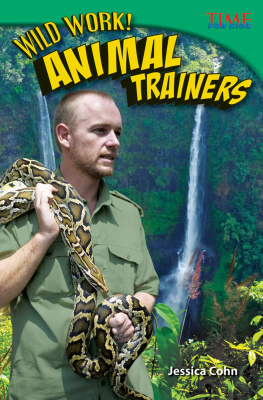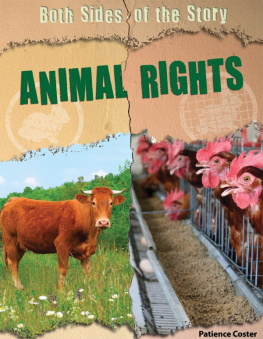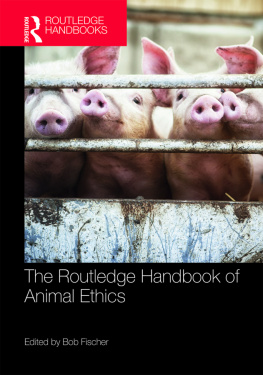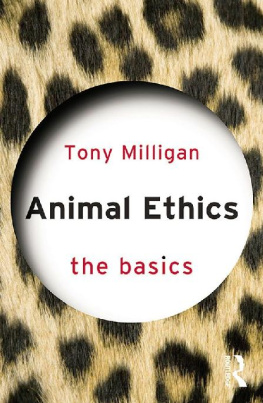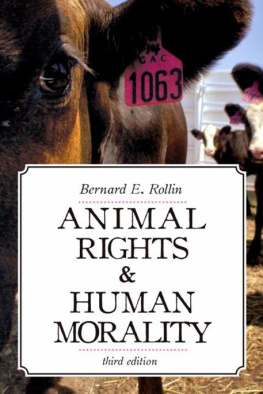For Kuksi, Stella and Hiasl
First limited edition
Vienna 2017
translated from German
by Paula Stibbe
cover photo
by Daniela Deml
layout
by Franz Gratzer
Production and print:
BoD, Books on Demand GmbH, Norderstedt
ISBN: 9783746083117
CONTENTS
ACKNOWLEDGEMENTS
My thanks are due first of all to my dearest Kuksi for his friendship and love, and for his endless patience while I was writing this book. I'm looking forward to many weeks and months with you in the wild!
I also want to say a big thank you to Estella Kubek, who really supported and encouraged me, many thanks for the valuable comments on the different chapters.
Thanks also to Paula Stibbe, who not only introduced me to Hiasl and commented on his chapter, but also translated my book into English.
Thanks to Rosi and Hiasl for the times we have spent together and for their friendship even though they have more than enough reason to hate people.
I also want to say a big thank you to Birgit Deutsch and the veterinary practice Hirschstetten in Vienna, who helped us so much through the dramatic months of chemotherapy.
Thank you to Eberhart Theuer and Stefan Traxler for the help in our joint fight for Hiasl's guardianship trial, also to Eva-Maria Maier, Stefan Hammer, Volker Sommer and Signe Preuschoft for their excellent expert witness statements.
My thanks are also due to the organisation VGT (Association against Animal Factories) as my employer for making it possible for me to write this book.
Thank you to Kurt Kotrschal, who showed me the Wolf Science Center and who, through his talks, inspired me to write this book.
Many thanks to all scientists, who are interested in non-invasive research into dogs and chimpanzees, and in particular to those, who spend their time in the jungle. It is not a given that they should pass their valuable knowledge on.
And last but by no means least, I want to thank all those who stand up for animals and animal protection, or who have made the switch to a plant-based diet. You give me hope that we do have it in us to fundamentally rethink our position regarding animals and that we one day will truly achieve a multispecies society!
PROLOGUE
In 2004, I wrote my doctoral thesis in philosophy on animal rights at the University of Vienna. It was very important to me to bring this subject into the academic world in a serious and scientific way. In those days, there wasn't much to hear on this topic at university level in Austria. A lot has happened since then however. In the mean time, human-animal studies has established itself and animal rights is no longer a foreign concept in philosophy or in biology.
In 2008 a group of masked people broke into my flat during the night. They held me at gun point in my bed with their weapons at my head and shone a flashlight in my face. It was the police. I was suspected of being the head of a criminal organization planning an animal rights revolution. For 105 days, I disappeared into a prison. My doctoral thesis, which by that time had been published as a book (Balluch 2005), was seized during the house search. Eventually, it was because of the thesis that I was charged as being a leading thinker for criminal animal activists, besides 29 more charges. In 2010/2011, I had to endure a gruesome 14 month trial.
In the end I was found not-guilty on all charges. Long after this verdict, I was given back the last of my confiscated possessions, one of which was my thesis. The ideas in my thesis also played a role for the Head of the University of Vienna to decide to ban me speaking at the university. When I asked why, I was told that I was deemed a security risk. If I gave a talk, it could not be guaranteed that my audience wouldn't rise up and go on the rampage.
What kind of explosive ideas must I have had in order for them to bring about such a reaction? Or do those in positions of power in our society have so much to lose, were we to start taking animals seriously and respect their autonomy? When I left prison, I decided to take on a dog from a shelter again. Being stuck in a cell for so long made me aware of how awful it is to be robbed of your freedom for no reason. I found my new friend Kuksi in the animal sanctuary 'Tierparadies Schabenreith' in Upper Austria. Two months before, he had been dumped by a motorway service station. We both had a new life to begin.
Eight years have since gone by. We have grown close and inseparable. Our friendship inspired me to write this book. In everyday life it is so self-evident that Kuksi thinks and feels and behaves autonomously. How could anyone dispute it?
As a scientist, I have collected many facts in addition to our personal experiences, in order to present the case for Kuksi demanding autonomy in our society. A lecturer claimed in a series of talks on animal ethics held at the University of Veterinary Medicine in Vienna in 2008 that Immanuel Kant was right in saying that animals are only things. Kant is influential to this day, not the least because the Austrian civil law code is based on his thinking. Humans are persons, animals are things, this is the bottom line. This book is a head-on confrontation with Kant's teachings. It uses his form of reasoning to demand rights for animals and their personhood status. I think that, with the knowledge we now have about animals, this conclusion is inescapable.
I hope that this book will make a lasting impact, without it resulting in masked police once again breaking down my front door in the middle of the night!
Martin Balluch, July 2016
INTRODUCTION
I love nature. And by that, I don't just mean I like walking through city parks, reading books about nature reserves or tramping along well worn footpaths up to classic mountain peaks. No, I cannot live without going into the wild as often as possible. I search out untouched forests, where there are no traces of humans to see. I go off paths and avoid mountain cabins. I travel to the Arctic and Northern Scandinavia or I spend weeks in the Southern Carpathian mountains or at home in the Eastern Austrian Alps. The internal urge to be in nature is so strong that I organize my career and social life such that I can spend around 100 days a year in the forests, mountains, tundra and taiga. It can hardly be called a visit, it's more like a home coming. For me, every day that is not spent in nature is a lost day.
Actually, I would have thought that this longing is the most normal thing in the world for a primate such as myself. For a being made and evolutionarily adapted for climbing trees, it's only to be expected that I have a longing to want to do this. And, that's exactly how it is. Once, I was allowed to work for a number of weeks at the European Nuclear Research laboratory CERN in Geneva. The first thing I did when I arrived there was to climb a tree in the campus grounds. The scientists showing me around were completely baffled. But from my point of view, I couldn't understand how anyone could live without climbing trees, smelling their bark, lying in their branches and feeling their structure with your hands. I cannot, as I found out during my time in prison. I was wrongly locked up for 105 days as later confirmed by the court. One hundred and five days with concrete and fluorescent lighting, not a single green plant or any trees in the prison yard. This was the worst time of my life.
For the people in my social surroundings at least, this longing of mine lies outside the norm. I'll never be able to understand why, for most other people, nature is a world that they hardly seem to miss. I was able to observe this in the people I shared different cells with during my stay in prison. Hardly anyone suffered from not having access to nature in the way I did. There, the wild had mainly negative connotations, as something cold, inhospitable, unpleasant, arduous, wet and non-protective. The warm cell was seen in contrast as a comparatively pleasant place. The one time, during the 105 days that I was allowed to have 3 books from the prison library, all of which were about being in the wild, my cell mate told me, in no uncertain terms, that he would rather be here, locked up in this cell, than at the North Pole in Franz Josef Land in a tiny cabin, like the people in the book. For me, it was totally the other way round.
Next page
